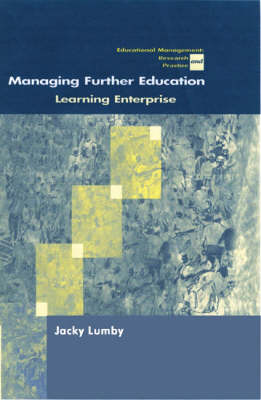Centre for Educational Leadership and Management
3 total works
Human Resource Management in Schools and Colleges
by David Middlewood and Jacky Lumby
This textbook deals with current theories of the management of people employed in schools and colleges, recent developments and emerging trends. The authors focus on issues relevant to the whole organization and the the specifics of managing a school or college and its employees. They also cover the application of good practice to management processes such as selection, induction, performance management, appraisal and staff development.
It is relevant to teachers and managers working in schools of all phases, and in further education colleges, including those aspiring to more senior positions. It is also directly relevant to the requirements of the NPQH.
`Foskett and Lumby's book forms an important and a timely contribution to comparative international studies of educational leadership.... In challenging a range of deeply embedded suppositions about leading and managing in education the authors remind us regularly that the mightiest task of even the most accomplished transformational leader, or radical government policy, is to transform values, attitudes and professional culture. So this exposition of similarities and contrasts in practices makes a useful contribution to the literature on educational leadership in this country and beyond' - David Wood, Journal of Inservice Education
This accessible book provides a critical review of educational leadership and management from an international perspective. It addresses the expectation that practitioners and students of educational management and administration will have an international perspective on their roles, responsibilities and tasks. Increasingly, teachers as education leaders are expected to keep pace with developments in other school and college systems, and to engage with international networks to debate and exchange practical experience.
The book covers a series of key themes in educational leadership, drawing on a wide range of examples, including:
- Learners and learning
- People and communities in education
- Managing strategy and resources
- Learning futures and the changing challenges for educational leaders.
In this context the authors:
- Describe the international landscape of leadership and management.
- Provide an overview of practice in different national settings.
- Identify global patterns and trends.
- Challenge some of the accepted norms in leadership and management.
- Build managers' confidence as part of a global community of professional educators.
- Support informed choice about policy and practice from government to school.
This is a key text for students of educational leadership and management as well as for managers and administrators in schools, colleges and other educational settings.
The incorporation of the further education sector in 1993 was followed by a period of extreme turbulence. Colleges plunged into the complex task of managing huge organizations while under pressure from cuts in funding and a steady expansion in the number and range of students. While financial scandals may have attracted attention, the success of the further education sector in continuing to provide a vital educational service for millions of people has been less recognized.
Despite the significant contribution of the sector to education and training, practitioners struggle to find adequate research evidence on which to base reflection and practice. They need material relevant to the specific situation of managers working within this very hybrid sector, part public sector education and part commercial organization, catering for an age and ability range greater than that of any other educational sector.
Based on a national survey of college managers, this book investigates how managers are responding to the challenge to increase the numbers and range of students and to improve learning and teaching. The author shows what it means to lead in a college and how the culture has evolved. Each chapter focuses on an aspect of management. The book concludes that 'learning enterprise' is an apt description of further education, a sector which has retained learning at its core and has learned to adopt an entrepreneurial spirit to shape its future.
Managing Further Education will be essential reading for professionals working in further education and all those interested in the management of this complex and vital part of educational provision.


